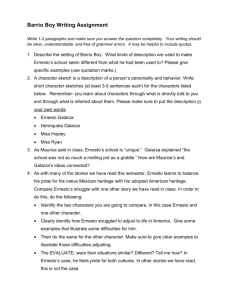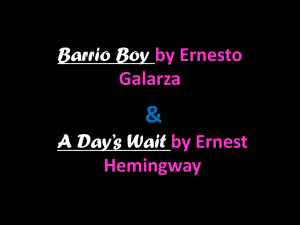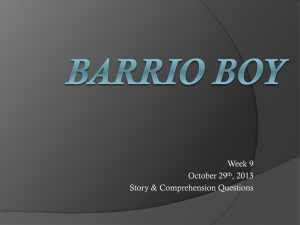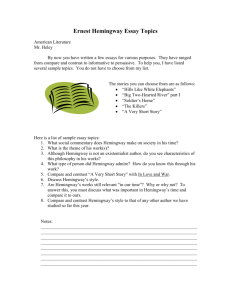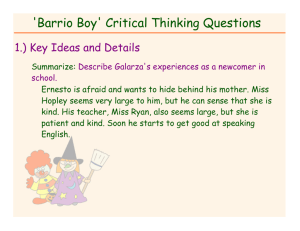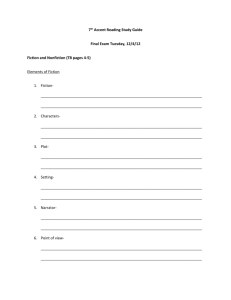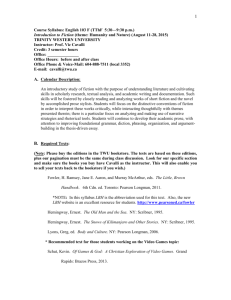Barrio Boy by Ernesto Galarza
advertisement
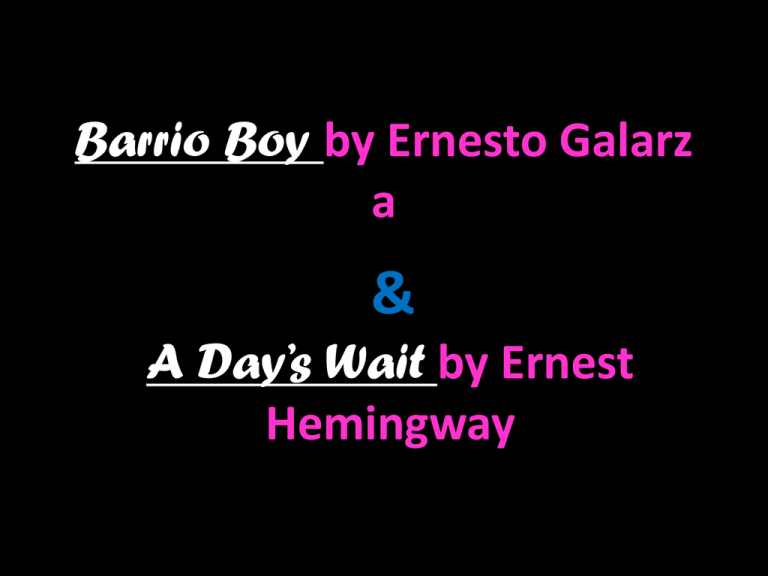
Barrio Boy by Ernesto Galarz a & A Day’s Wait by Ernest Hemingway The plan…. • Objectives • Review – Barrio Boy & A Day’s Wait – Ernesto Galarza & Ernest Hemingway • • • • Compare and Contrast Fill in the Table Complete the Venn Diagram Evaluation – Questions • Homework – Unfinished Classwork • Preview: All Summer in a Day Objectives • Students will develop compare and contrast skills • Students will demonstrate reading and listening comprehension skills by completing graphic organizers • Barrio Boy tells about an important real event in the writer’s life. • A Day’s Wait is the story of an imagined boy on a single day. • Ernesto Galarza » When he was seven years old, Ernesto Galarza moved form Mexico to California. There his fami ly harvested crops in the field of Sacramento an d struggled to make ends meet. Galarza learned English quickly and won a scholarship for college . » Helping farm workers from 1936 to 1947, Galarz a served as chief of the division of Labor and So cial information for the Pan-American Union, de aling with education and labor in Latin America. When he returned to California, he worked to g ain rights for farm workers. Ernest Hemingway A true adventurer, Ernest Hemingway based much of his writing on his own experiences. He served as an ambulance driver in World War I, worked as a journalist, traveled the world, and enjoyed outdoor sports. Writing about the familiar, Hemingway’s fiction celebrated his spirit of adventure. The story “ A Day’s Wait” captures the quite bravery of many of his characters. Fiction and Nonfiction • Fiction is prose writing that tells about imagin ary characters and events. – Novels, novellas, and short stories are types of fict ion. • Nonfiction is prose writing that presents and e xplains ideas or tells about REAL people, place s, objects, or events. – News articles, essays, and historical accounts are t ypes of nonfiction. Both selections are examples • Barrio Boy of narrative writing. They – Nonfiction (narrative) each tell a story with the following elements. • About real people • Has characters • A narrator that tells the story. • Characters, or real people living the story. • A Day’s Wait • Dialogue, or the – fiction (narrative). conversations that • About imaginary charac characters have ters • Has characters • Story events that make up the action Compare and Contrast Barrio Boy Real characte rs Both A Day’s Wait Characters Imaginary characters Title Author Style & Genre Narrator (1st person or 3rd) Characters Setting Where? when? What is the problem? Why? Did the character have a problem? Important Events Which events make up the action of the story? What is the solution? How did the character solve the problem? How wa s it solved? Lesson What did the characters or readers learn? Evaluation: How are the stories the same or similar? How are the stories different? Classwork/Homework: Complete the table and Venn diagram Preview: All Summer in a Day The End

